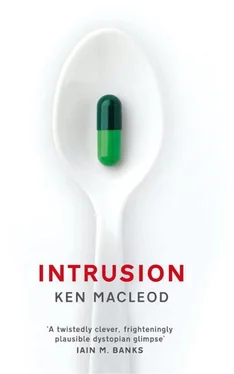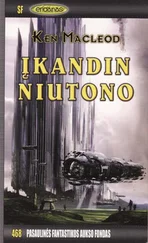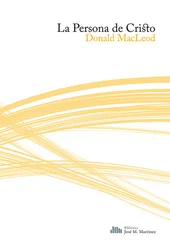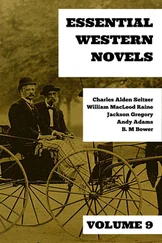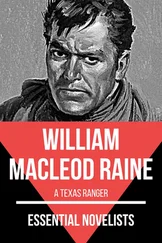Back at the lab, Geena made her usual discreet notes on the behaviours of Brian, Sanjay, Michael and Joe, added a page’s worth of text to her thesis draft, and then turned to doing a little research of her own.
As an accredited postgrad at Brunel, she had management-level access to public-health databases. And as a participant observer at SynBioTech, she had the same kind of access as the research teams: to data for specific individuals. It was taken for granted that she wouldn’t combine these permissions on her own behalf. She had them solely to observe the work of the researchers. To use them for research of her own would be considered unprofessional. But that restriction was entirely in her head – or, to put it more scientifically, in her socialisation into the subject position of a social science researcher.
Well, fuck that. They’d pissed away twenty-three years of socialisation in the second it had taken them to shove the pin under her fingernail.
She called up the genetic profiles of Hope, Hugh and Nick Morrison, and began poking around.
Hope stood in a side street in Finsbury Park clutching one pole of the North Islington Constituency Labour Party banner and ducking into a flurry of apple blossom and snowflakes. With her free hand she held on to the crown of her broad-brimmed straw hat. Her long blue serge skirt kept her legs warm, but her pin-tucked muslin white blouse felt far too thin for the wind, even with a wide green-and-purple satin sash across it. The look for the day was suffragette. Hope had pinned the sash into place with the new retro repro Party badge that had been enclosed in her welcome pack, and criss-crossed it with the strap of her shoulder bag. The red banner, gold-fringed and heroically embroidered, flapped and strained like a sail in the chill breeze. Bloody global warming, Hope thought, wishing she’d complemented the look with gloves.
There were scientists who claimed to have evidence that the climate was changing under the impact of human activity. They were called deniers. They argued that the New Trees and other engineered organisms were removing carbon dioxide from the atmosphere far too fast, and that this – along with the increasing use of non-fossil-fuel energy sources – risked tipping the planet into a new ice age. Their work appeared only in the unregulated wilds of the internet, beyond the firewalls and filters that kept most discussion relatively sane. But even that was hardly necessary – it was generally taken for granted that the deniers were beholden to the polluting industries of the smokestack states, Russia and India, where denial was policy.
Hope was only sporadically aware of the deniers’ existence. In her mind, as in the online world, they inhabited the same spaces as people who posted bomb-making instructions, Naxal agitprop, and child-violation videos. But some days, such as this first day in May, she had the fleeting thought that they might have a point.
The street was one of the narrow residential streets like her own, ribs to the spine of Stroud Green Road, in which tall apple and cherry trees vied with New Trees to half-hide the pinched, overgrown front gardens and the frontages of three-and four-storey houses in which two or three families lived on top of each other. For about a hundred metres the carriageway was crowded by rank upon rank of May Day marchers. Although, now she thought about it, ‘marchers’ didn’t seem too apt a word for the few hundred people here, diversely clustered under union branch, community group and peace campaign and Woodcraft Folk as well as Party banners. The mood, as far as Hope could judge it, was more festive than militant.
Not that militancy had anything to do with the Party. Hope had been to two branch meetings – the date of the first had come up a few days after she’d joined – and had found them somewhat dispiriting affairs. The meetings were held in one of the junior classrooms of the primary school at the other end of East West Road, the very one Nick was due to start attending next September. Hope had found it difficult to take seriously a two-hour-long, procedure-dominated agenda earnestly discussed and minuted by people sitting on bright-painted wooden chairs designed for five-year-olds. It hadn’t helped that the third item discussed had been about the importance and urgency of getting the Council to close down the very same open-air back-yard smoking café where she’d talked with Maya. Hope had sat on her hands and kept her mouth shut through that one, and the following morning, after dropping Nick off – as always now, without any trouble – at the nursery, had nipped straight round to warn the shopkeepers of the exact time of the likely visit from Environmental Health.
Apart from that, and Hope’s total, gut-level disagreement with assumptions that everyone in the branch seemed to take for granted, Maya had been correct about her fitting right in. The North Islington branch of the Party was run almost entirely by Islington mothers and grandmothers. The only opposition came from the daughters, one of whom was – much to Hope’s surprise – one of the young women who’d joined in Maya’s flash mob. Her name was Louise and she betrayed no sign of recognising Hope. Her dissent was articulated as a grumble that the Government and the Council were ‘doing all right on the green issues, but not so well on the red issues’, a comment that Hope felt not at all inclined to ask her to elaborate.
The other person Hope had recognised, to her even greater surprise, and who had recognised her and welcomed her to the room, the branch, the Party and the whole great global movement in one rush and gush, was Deirdre, one of the friends whose unhelpful response to her initial panicked email about the nature-kids thing had been so disheartening. Deirdre was a tall, slim woman with slightly forward-placed teeth, a feature she evidently disliked but which – when she forgot it enough to let her lips open – gave her a bright, pleasant grin, and an enigmatic, questioning look when she smiled with her lips closed. She managed a café – smoke-free of course, but also sugar-free, fat-free, caffeine-free and salt-free – in Seven Sisters Road, just opposite Finsbury Park Station. Her two children, both New Kids and thriving with it, attended the school where the meetings were held. Her husband dropped the kids off and picked them up, made their breakfasts and their dinners, and minded the house with more or less competence, in between co-ordinating from the front room a vast, unending cameradrone operation over Peru, allegedly for some coalition of development and human rights NGOs but (Hope had long suspected) actually wirelessed in to the ongoing counterinsurgency: fingering militants to death squads, targeting air strikes on peasant villages. In short, an ideal Labour family.
At the second meeting, one soggy Wednesday evening in mid-April just after Hope’s first pre-natal check-up, Deirdre had introduced the item on the preparations for May Day, and gone on to explain the issue that the branch and the whole CLP and indeed all of London’s Party wanted to highlight, and the importance of the issue itself and the relevance of the suffragette theme, and had wound up by enthusing about how all the women in the branch had pitched into dressing up for it, a detail that had apparently been decided months ago and which had led on Hope’s part to an hour of indignant wardrobe rummaging for old maxi skirts and even older fancy blouses, followed by annoyed dusting and repairing and decorating of a much-despised straw sunhat that her mother had bought her on their last shared holiday, in her mid-teens, back when there were holiday flights.
And here came Deirdre now, carrying a ‘SAFE WORK FOR WOMEN’ placard that was, like all the rest that bobbed above the crowd (‘PROTECT WOMEN AND CHILDREN’, ‘SAFER WORKPLACES FOR ALL’), neatly printed to look as if hand-lettered with a marker pen.
Читать дальше
